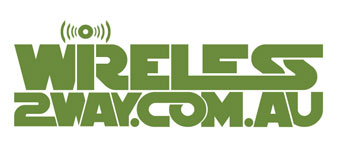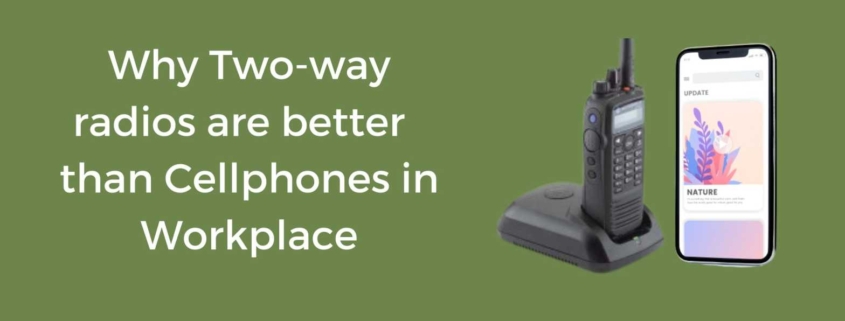Why Two-way radios are better than Cellphones in Workplace
Cell phones are beneficial to consumers and the general public daily. However, when it comes to two-way radios versus mobile phones, there’s a reason why most individuals in business and industry utilise two-way radios.
Most of the time, the two technologies aren’t even direct competitors.
We’ll look at the benefits and drawbacks of each and why two-way radio communication can be the better, more cost-effective option for your company or organisation.
Here are several advantages to consider when picking between cell phones and two-way radios, ranging from longer battery life to lower ownership costs.
Increased battery life
Two-way radios have a far longer battery life than cell phones, and they come with portable batteries that you can use to keep in touch in the event of a power outage or other emergency.
Improved Network Safety
There’s no need to be concerned about a security breach, a bugged phone, or a network outage. Two-way radios are the most reliable and secure means of communication.
Sound Quality & Coverage Have Improved
When you’re continuing to work in a construction area, in a remote location, or on the road, it’s common to lose cell service. Instead, you can have clear communication and high-quality sound everywhere, at any time, using two-way radios.
It leads to a reduction in downtime.
No more awaiting your smartphone to be serviced, attempting to get service, being disoriented on social networking apps, or blaming a missed call on bad timing. Instead, you may now concentrate on the task rather than your cell phone issues.
Noise-Canceling Technology
Background noise is removed thanks to powerful noise-cancelling technology, allowing you to communicate no matter where you are.
Superior Longevity
A two-way radio is indestructible and can be dropped, dragged, or spilled.
A More Usable User Interface
Using a touch screen isn’t always practical when you’re on the job. On the other hand, two-way radios are straightforward to operate.
Enhancing Communication Capabilities is number eight on the list.
Because you don’t have to wait for a connection, you can now communicate with the entire team immediately. Just push, chat, and you’re done.
It’s a Better Option in an Emergency
When you’re in an emergency, you don’t have to worry about getting a busy signal, someone not picking up the phone, or losing service.
Independent Network
You’re no longer dependent on a cell phone tower or your service provider’s coverage network. Two-way radios work on an entirely different system. This also means that they continue to function in the event of a network interruption.
Notifications for Advanced Users
You can still use your two-way radio on the job site to receive alarms, work tickets, and monitor lone workers.
Distracted Driving is Reduced
Federal law prohibits all interstate truck and bus drivers from using a handheld cell phone while driving. It’s practically impossible to contact drivers as a result of this.
The quietness on the other side of a dropped or ignored call while on the job is one of the most frustrating situations. Typically, that stillness results in important minutes or hours of doubt about how to proceed, delaying a project and spending additional resources to seek clarity.
One of the most crucial and complex aspects of workplace communication. Whether you’re strolling from room to room in a peaceful assisted care home or in the middle of a hectic construction project with automobiles whizzing by and car horns blasting, getting a message across swiftly and effectively is critical.
Many industries consider whether to establish a two-way radio network or use cell phones to give teams the greatest communication gear imaginable. While cell phones are perfectly useful in many situations, there are numerous significant advantages to two-way radios that you should examine before selecting your firm.



